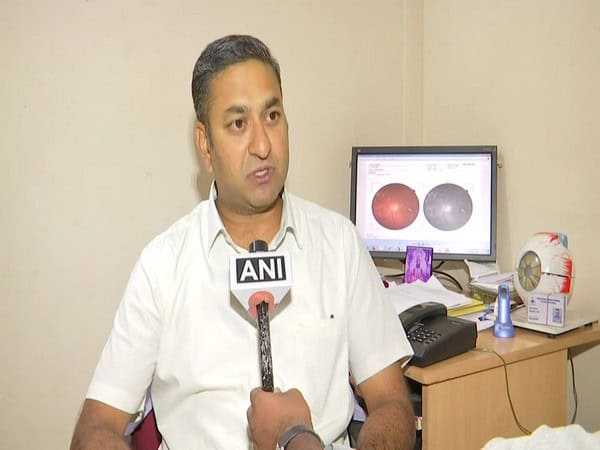Bengaluru: Prime Minister Narendra Modi, while in Singapore, visited the India-Singapore Enterprise and Innovation Exhibition, where he was presented with a demonstration on how a group of Indian doctors have been delivering a high standard of care to the country’s most remote communities.
In the exhibition, held at Marina Bay Sands Convention Centre, the experts talked about their initiative for early detection and treatment of Diabetic Retinopathy (DR) among rural patients.
Prime Minister Modi and his Singaporean counterpart Lee Hseng Loong jointly reviewed the Artificial Intelligence (AI) technology of Singapore-based firm Graphene, which has been adopted by the pioneering doctors of Karnataka’s Vittala Institute of Ophthalmology.
Dr Krishna and his team have spent decades developing protocols and systems to offer care to remote rural patients from their Bengaluru-based hospital, via their program Nayana.
The program was established in 2006 as a pilot with support from the World Diabetes Foundation to detect, diagnose and treat DR in villages of Karnataka, through a unique system- Mobile Clinic.
As the name suggests, it is an indigenously built van, carrying all the necessary equipment required to treat DR and customised with special shock absorbing cages/boxes to protect delicate, expensive equipment on treacherous roads in rural Karnataka.
The program enabled sharing of DR equipment and expertise, with 83 practicing ophthalmologists in 24 geographical locations spanning 13 districts in state of Karnataka.
Since 2016, this program has been expanded to include electronic medical records and patient tracking system. With the help of Coronis – a patient care tech platform from Graphene Service Pte ltd, Singapore based health-tech start-up – Nayana has been able to register and track 5000 patients regularly.
Talking about the need for the inclusion of the AI technology, Dr Krishna told ANI, “We were happy with what we were doing but there was still one big lacuna. Patients who you treat and want them to come for a follow-up, still miss out, for various reasons. So, we thought what if we had an active method of tracking each and every patient. Manually, it’s very difficult to track thousands of patients. Hence, we were on a lookout for a good electronic records system and that’s when Graphene came into picture.”
“On Thursday, we were represented by Graphene when Prime Minister Modi visited our stall. I got to know he was very interested in the program. He wanted to know where it was happening, which district in Karnataka. He did congratulate the team there on their good work and asked them to continue with it,” added Dr Krishna.
While Singapore is the latest country to learn from their program, it is also being actively explored by hospitals in the United States, Japan and Switzerland, and has been adopted by hospitals in Thailand and Bangladesh. (ANI)

